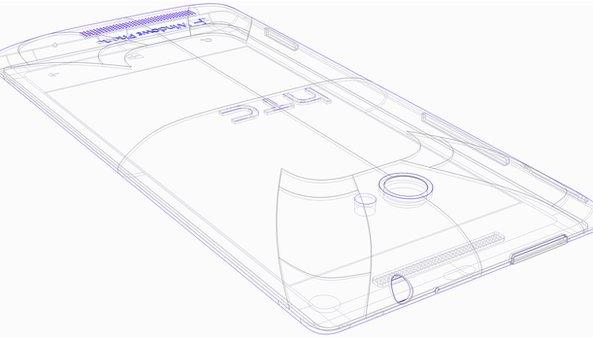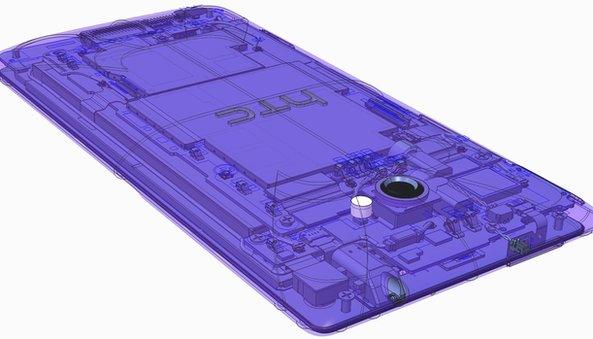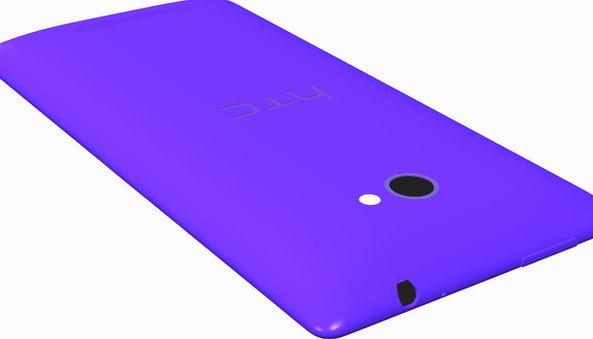From sketch to smartphone - how HTC drew inspiration from a shoe
- Published
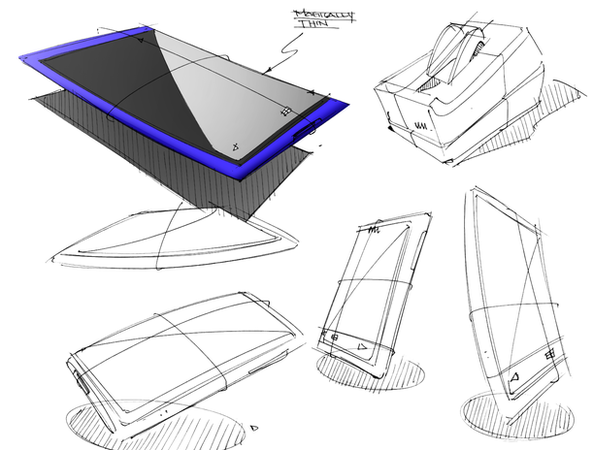
It is arguably technology's toughest design challenge.
How do you create a device that packs in all the hi-tech features an unforgiving public demands, but without sacrificing a sense of style and good looks?
As HTC attempts to claw back lost ground in the smartphone market, the BBC was given an exclusive look at what usually remains under lock and key - the early design concept sketches of a new smartphone.
Scott Croyle is the company's vice president of design, responsible for taking the very first scribbles and turning them into products that will compete with the likes of Apple, Nokia, LG, Sony, Samsung and Motorola - all of which have made smartphone announcements over recent weeks.
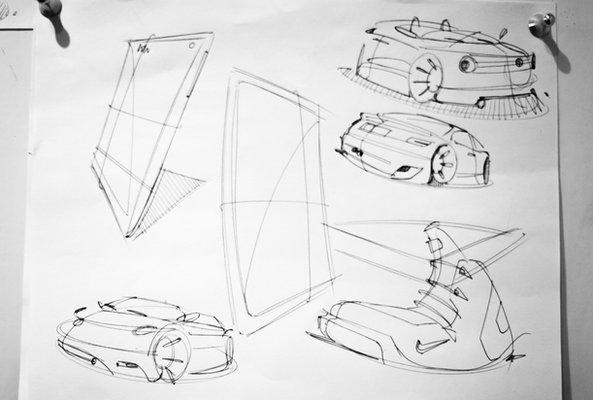
In the early stages of designing its latest phone, HTC's inspiration sparked from a somewhat unlikely place: a shoe.
"When you're designing a shoe, you have a very different mindset than when you're designing a phone," Mr Croyle said, speaking after the launch of the new handsets - neither of which look like a shoe.
Doodling sportswear is a particular speciality of Mr Croyle and team. Prior to being acquired by HTC, his company, One and Co, boasted Nike as one of its clients - so he said it seemed like a good place it start.
"When you start a sketch session, sitting down with the team, you can kinda get stumped.
"You're sketching for a while and you might sketch a car, or you might doodle a shoe... it's as you're doodling and messing around the page that all of a sudden an idea comes across."
The next challenge, of course, is to make sure that the design is feasible.
"It's one thing to sketch a pretty picture, but it's another thing to go in with a group of 15 engineers where they're all looking to you.
"You have to knowledgeable enough about the engineering to ask tough questions."
Be it from cars or trainers, such abstract influences make good business sense for a company striving to be unique. This year has seen several high profile court battles regarding patents and design rights, with bitter rows over whether companies have been copying ideas.
Firms have sought sales bans or huge amounts of money from competitors, with the biggest case involving Apple and Samsung - the iPhone maker was awarded $1.05bn (£665m) by a US jury in August.
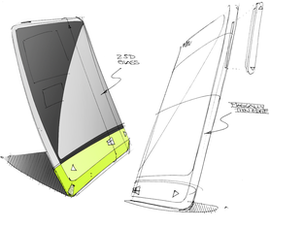
HTC also found itself locked in a dispute with Apple over the "slide-to-unlock" feature utilised in similar ways by both handsets.
But Mr Croyle said he did not let worries about possible patent infringements get in the way of creativity.
"We try not to think about it too much," he said.
"With an industry like design, you're dealing with people who bring a lot of emotion to the table, so you don't want them burdened with patent wars and concern about that.
"That's something we can deal with and analyse after the fact."
Despite the efforts, the HTC 8X and 8S are, like every smartphone on offer, both minimalist rectangles with buttons. However, Mr Croyle and his team believe they have a trick up their sleeves to help the mobiles stand out in the crowd - a range of vibrant colours.
Once again, sport was a key inspiration.
"If you look at the colours of these phones, you see a lot of more of those colour in sporting goods," Mr Croyle said.
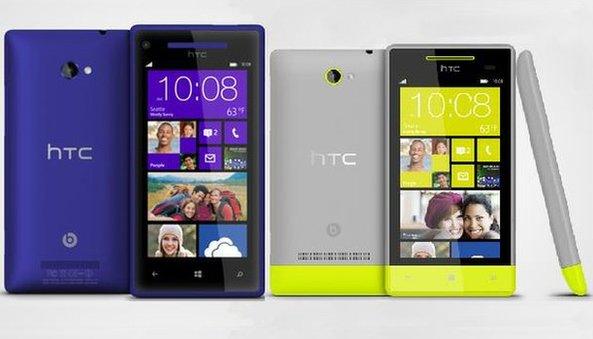
"Of course we had these colours in development for a lot longer, but when I saw the Olympics I was like 'Oh, we were right. This is the perfect timing for these colours to come out'."
The smartphones certainly stand out against the blacks and greys more common in the market - although Nokia's Lumia range, also on Windows Phone, is arguably just as vibrant.
The finished products, seen above, will go on sale in early November in over 50 countries.
Mr Croyle is convinced that his phones are strong enough to tempt back customers who took their money elsewhere last year, causing the company's share price to tumble by as much as 80%.
But while the exterior of the 8X and 8S are intentionally loud, it is what they are capable of inside which will matter most to mobile buyers, most of whom have been slow to purchase existing smartphones running an earlier Windows Phone operating system.
- Published19 September 2012
- Published12 September 2012
- Published18 September 2012
